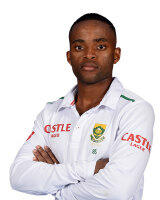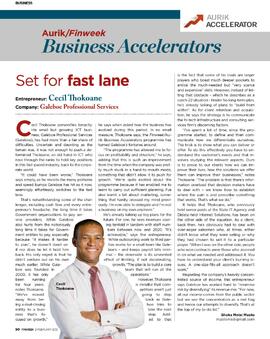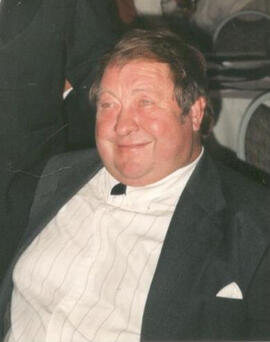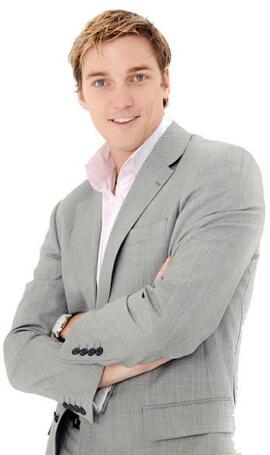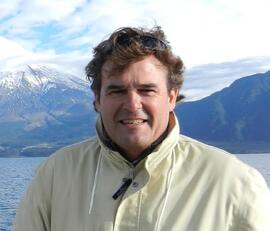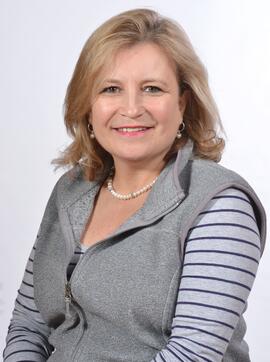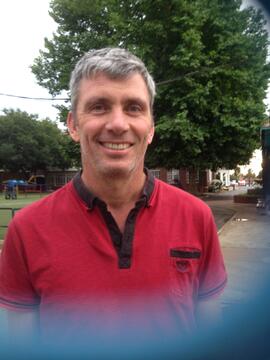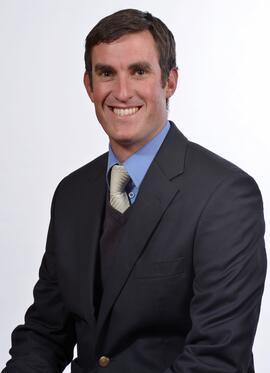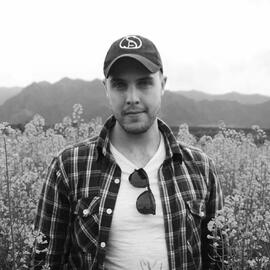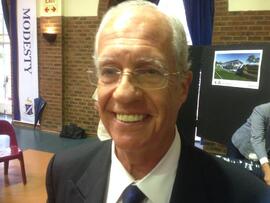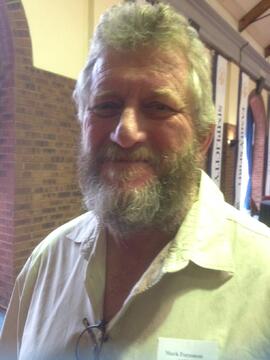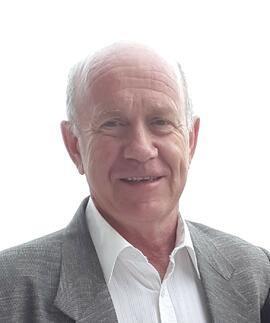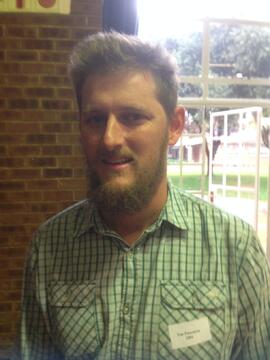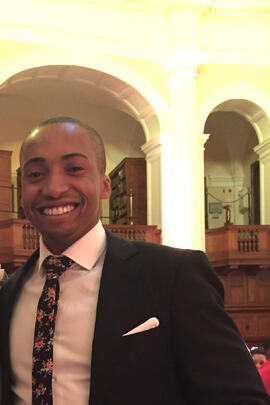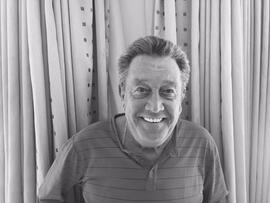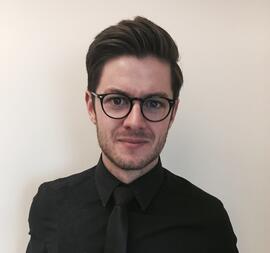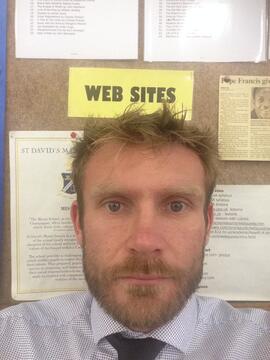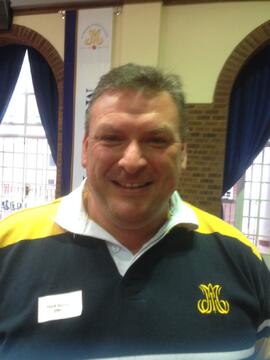Interview with Temba Bavuma 2007
- ZA ZAR STDS 202000943
- Unidad documental simple
- 2015
Interview with Temba Bavuma – 2007
Temba moved from Cape Town to Johannesburg with his parents in 2003 and first went to Fourways High
School joining St David’s in grade 10 when he was awarded a sports scholarship to play cricket. He was
spotted by Shane Gaffney and Roger Budd at a regional U15 cricket week.
At first he found the school rather intimidating and didn’t know quite what to expect as a co-ed school is run
somewhat differently. He made friends easily especially with his sporting background being involved with
rugby, soccer, cricket and cross-country.
Temba was awarded colours for soccer and cricket but didn’t play in an open year. He played for the A or
1st team in all the sports in which he participated and at one time soccer was his first love before cricket. He
struggled in the first few years but represented Gauteng U19 cricket. Initially he was going to study at UCT
having gained 3 distinctions in matric but he stayed on at St David’s and completed a post-matric year
which qualified him to play for SA Schools. It was a very tough year having to come back to school in
uniform and repeating matric subjects again. However, it did make him mentally stronger as an individual
and from a cricketing point of view.
Temba enjoyed the brotherhood at the school with a tight relationship amongst the guys especially in rugby
and cricket.
Temba did struggle with all the discipline and school regulations and those parameters but, with hindsight
he now appreciates it. He found all the teachers to be different and he could relate to them. Mr Ireland
didn’t show much emotion presenting a tough facade but Temba enjoyed him. Mrs Deetlefs had a vibrant
nature and always engaged with the students and Ms Cambitzis tried to break the student, teacher barrier.
Temba feels he owes a lot to Shane Gaffney who gave him the opportunity to succeed and contributed
greatly to enable Temba to get to where he finds himself now. Shane was very strict but tried to get the
best out of him and the other boys.Temba also had a good relationship with Amarinda Binder who helped
him a lot.
One unfortunate incident which stands took place during his grade 11 year when Sello M........... lost his
soccer boots and assumed that Temba had them. Sello took Temba’s school and cricket bag in revenge
which meant that Temba couldn’t do his homework or attend cricket training. This was a disaster for
Temba.
Temba went on school tours to Maritzburg and was involved in the St Albans tournament for cricket and
with soccer went to Kloof High and Durban, and played rugby in Bloemfontein at Gray’s College and St
Peter’s.Temba remembers that before his matric dance he was playing cricket all day and wondered if he
would ever make it.
The friendships he made at school he will always cherish and he remembers in particular Sabelo Sithebe,
head boy whom everyone respected, he was inspiring.
Temba matriculated in 2007 and 2008 with Accounting, Biology, Zulu, English, Business Economics and
Mathematics. He admits that his focus was not on marks but on cricket and was fortunate to play SA
Schools and for the SA U19 team, memories which he will cherish forever.
Temba appreciated the support he was given by being at St David’s, the way the school was run with its
systems and structure which enabled him to become the person he is today. It shaped him and encouraged
him. The values and principles the school instilled in him whilst he was there. The biggest thing wasn’t
about academics but how to be a man amongst other men. Comfortare Esto Vir: Take courage and be a
man.
In 2009 Temba enrolled at University of Johannesburg to study for BComm Finance. He finished the first
year but dropped out in the second due to his cricket commitments, enrolled at Unisa and finished his
degree in June 2014. He found it difficult to study and play sport. It was hard to find the energy after a
tough days training to apply himself to his studies. At the moment he is focused on his cricketing career and
a coaching facility at St David’s which he hopes will start at the end of March. He will be touring India and
Bangladesh during the winter.
Temba is now receiving information from MOBS and hopes to get more involved in future.
JLE February 2015
Egenrieder, Julie

